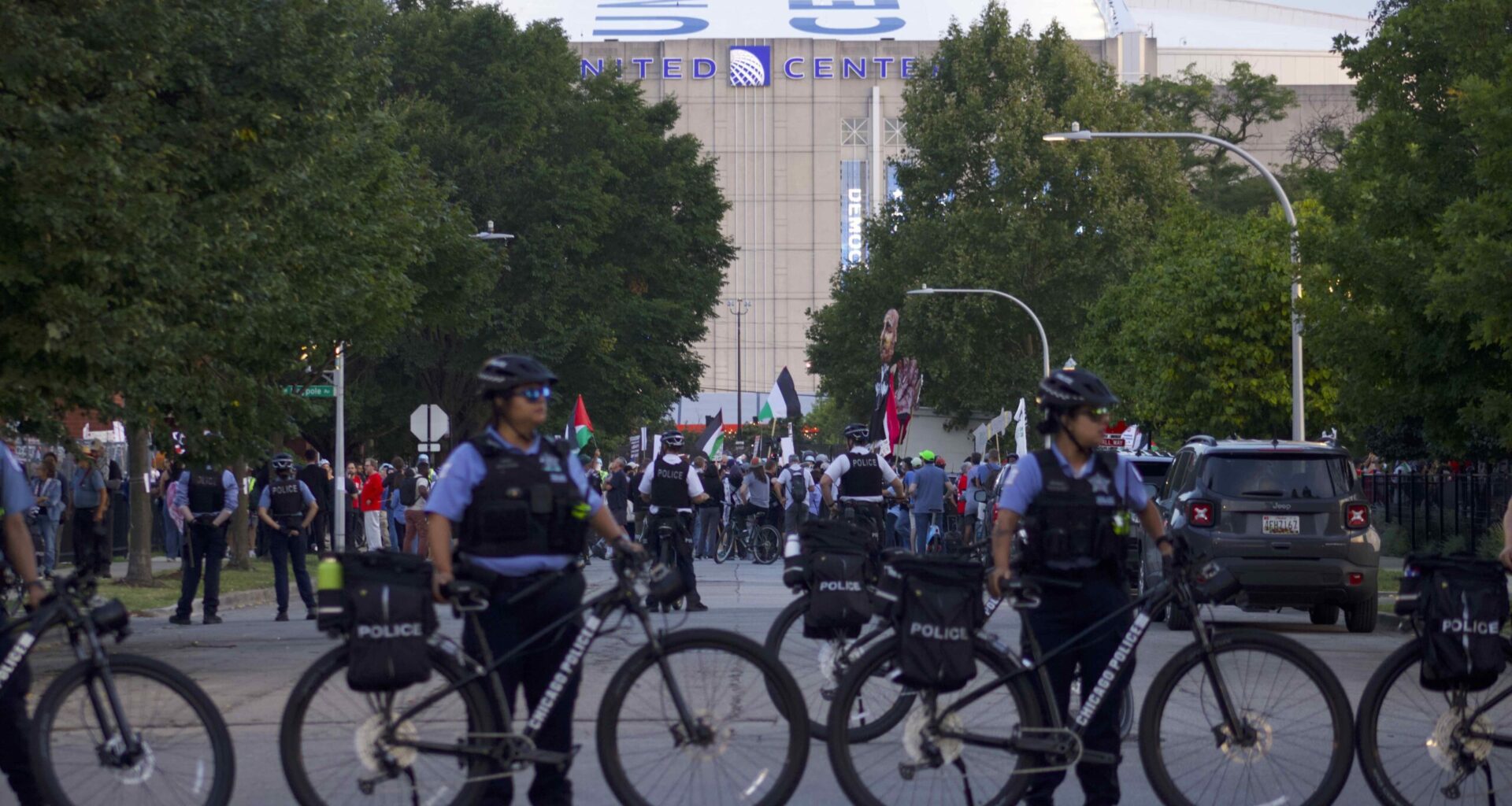The Chicago Police Department spent more than $27 million on overtime related to the 2024 Democratic National Convention—nearly $10 million more than it received in federal personnel funding, according to newly published data from the City’s Office of Inspector General.
The figures are part of a new interactive dashboard launched this week by Inspector General Deborah Witzburg, who told the Weekly the tool is designed to improve transparency as the city braces for a projected $1.2 billion budget shortfall in 2026. Since January 2020, police overtime spending has exceeded $1.34 billion.
“In any one of a number of recent years, CPD’s overtime spending alone dwarfs the entire budget of many other city departments combined,” Witzburg said. “That is not necessarily itself a problem. It is just an indicator of the scale.”
The department spent nearly $27.3 million on overtime tied to the four-day Democratic National Convention held in August. Officers worked more than 340,000 hours of overtime related to the DNC, for which they were credited almost 560,000 hours’ worth of pay. Officers are credited 1.5 hours of compensation for each hour of overtime worked.
CPD’s portion of the $75 million in federal security funding for the convention was $17.6 million, which was meant to cover personnel, training, and operations costs. The new data shows overtime spending alone exceeded that amount by nearly 60 percent.
Thousands of protestors staged mostly peaceful marches during the four days of the DNC. The demonstrations were monitored by hundreds of officers in riot gear. A few dozen protesters and at least two journalists were arrested during the convention.
A few reports have suggested that departments that excessively rely on overtime see higher rates of officer attrition and increased incidents of both excessive force complaints and vehicle crashes. Attrition has plagued CPD, with one in six officers leaving the department between 2016 and 2024, according to a Sun-Times analysis.
A CPD spokesperson did not immediately respond to a request for comment.
Witzburg declined to weigh in on CPD’s handling of DNC spending specifically. She said the dashboard is meant to help the city better understand what drives the costs behind public safety operations.
“The police department is always going to have unexpected staffing needs. An entity that’s in emergency response will have emergencies,” Witzburg said. “But where overtime spending is of the scale which we have seen in the last few years, it is a sensible question to ask whether there are things we can learn about where we need staffing and how much that might help us better predict personnel costs.”
CPD spent nearly $3 million in 2024 on overtime for homicide investigations, which Mayor Brandon Johnson has repeatedly said are a priority of his administration. Homicide detectives, who are often overburdened with large caseloads that leave them little time to solve cases, rely on overtime to track leads, secure witness cooperation, and for court appearances.
According to WGN, Chicago detectives closed only 23 percent of homicides with arrests in 2024, a figure only slightly better than what the department averaged from 2013 until mid-October of 2023. Police in New York and Los Angeles say their homicide clearance rates top 70 percent, by contrast.
Witzburg did not comment on the disparity in CPD’s spending on protests versus homicides. “Resources are finite, both financial resources and staffing resources, and we ought to be allocating those resources in line with institutional priorities,” she said.
Witzburg added that she hopes the data will give the public and policymakers “a clearer view of when and how much and how often overtime is required, so that we can plan for staffing.”
In 2024, 11,298 CPD officers, or about 97 percent, earned overtime. Total overtime earnings exceeded $270 million that year.
The city budgeted $100 million for police overtime in 2025, a figure the department has already blown through. Through June of this year, the department has spent more than $119 million on overtime.
The city’s 2026 forecast of a $1.2 billion budget shortfall could swell to $1.6 billion if the national economy takes a turn for the worse. CPD’s $2.1 billion budget represents nearly 46 percent of the city’s discretionary spending, and despite a net reduction of 456 budgeted positions in 2025, CPD’s payroll costs are up $77 million from last year.
Johnson has warned that Chicago may need to slash city services or raise revenue as federal COVID-relief money dries up and potential cuts from Washington loom. Johnson has described the financial pressure facing Chicago as unprecedented, saying this spring that the city must “do more with less.”
“We can’t expect to improve what we can’t measure,” Witzburg said. “The cost of overtime in CPD has historically been one of those things that is both very important and very hard to get a hold of. Our hope is that this tool will better equip us to measure overtime use and its cost, and from there, we as a city will be better positioned to plan successfully.”
✶ ✶ ✶ ✶
Max Blaisdell is a fellow with the Invisible Institute and a staff writer for the Hyde Park Herald.
